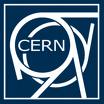Sponsors 
|
 |
Ex LibrisTM is a leading worldwide developer and provider of high-performance applications for libraries, information centres, and researchers, with installations around the globe. ALEPH® 500 and Voyager®, the Ex Libris Group’s flagship integrated library solutions, are in use at over 3000 sites worldwide. Other products from the Ex Libris suite, deployed at more than 1300 sites, focus on the digital library and offer state-of-the-art, user-centric solutions for managing electronic resources and digital assets and providing informed access to them.
|
|
 |
The Joint Information Systems Committee (JISC) supports UK further & higher education and research by providing leadership in the use of Information and Communications Technology in support of learning, teaching, research and administration. JISC receives funding from all the UK further and higher education funding councils.
|
|
 |
LIBER (Ligue des Bibliothèques Européennes de Recherche.) is a non-governmental association of the research libraries of Europe, formed under the auspices of the Council of Europe and having the status of a consultative body with that Council. LIBER represents and promotes the interests of research libraries of Europe. The general aim of LIBER is to assist research libraries in Europe to become a functional network across national boundaries in order to ensure the preservation of the European cultural heritage, to improve access to collections in European research libraries and to provide more efficient information services in Europe.
|
|
 |
Open Repository is a service from BioMed Central that builds, hosts and maintains repositories on behalf of institutions and organizations. Built on the Open Source technology platform: DSpace, but with additional features, Open Repository can be personalized to support an institution’s specific needs and identity. The service offers affordable and predictable pricing and with the technology already in place, repositories can be set up quickly.
Deciding how to build and host an institutional repository can be a major challenge for institutions, which is why Open Repository offers a FREE 3-month customized pilot repository for users to experience the service themselves.
|
|
 |
The Open Society Institute's Information Program has two aims. First, to enhance the ability to access, exchange, and produce knowledge and information for key open society constituencies and disadvantaged groups, especially in the poorer parts of the world. Second, to use new tools and techniques to empower civil society as a force for open society in national, regional and global arenas.
|
|
 |
SHERPA-LEAP (the London E-prints Access Project, affiliated to SHERPA) was founded in 2004 to develop open access e-print repositories for member institutions of the federal University of London. The project has so far helped to establish e-print repositories for 13 London institutions. It has also run regional advocacy events and workshops on repository issues. The LEAP Consortium is led by UCL (University College London), which also hosts some of the partner repositories. An OAI-PMH cross-searching service for the LEAP repositories is currently in development.
|
|


|
SPARC and SPARC Europe are international alliances of research institutions, libraries and organizations that encourage competition in the scholarly communications market. SPARC and SPARC Europe aim to introduce new solutions and models to scientific journal publishing, facilitate the use of technology to expand access, and partner with publishers that bring top-quality, low-cost research to a greater audience. SPARC and SPARC Europe strive to return the scholarly literature to scholars.
|
|
Organising bodies 
|

|
CERN is the European Organization for Nuclear Research, the world's largest particle physics centre. The Scientific Information Service (currently the DSU-SI group) has for its mandate the management of the Library and the Historical and Scientific Archives of CERN. The CERN Library not only acquires and manages information resources in all fields of relevance to the Organization, but it also makes these accessible in the most convenient way to the worldwide particle physics community. The CERN Library has acquired considerable expertise in the area of e-prints management.
|
|

|
Open Archives Initiative (OAI) develops and promotes interoperability standards that aim to facilitate the efficient dissemination of content. The Open Archives Initiative has its roots in an effort to enhance access to e-print archives as a means of increasing the availability of scholarly communication.
|
|
Organising committee |
- Paul
Ayris
- Lars
Bjørnshauge
- Raf
Dekeyser
- Anne
Gentil-Beccot*
- Jean-Claude
Guédon
- Melissa
Hagemann
- Neil
Jacobs
- Thomas
Krichel
- William
Nixon
- David
Prosser
- Bas
Savenije
- Susanne
Schaefer*
- Frank
Scholze
- Herbert
Van De Sompel
- Jens
Vigen*
- Joanne
Yeomans*
* Local organising committee (oaiworkshop-organisation@cern.ch)
|




 OAI5
Home
OAI5
Home Timetable
Timetable








